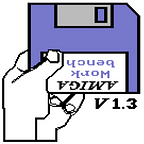At the end of last year Alejandro de Onís, the Director of Digital Strategy and Design at Knight Foundation, reached out to Postlight and asked if we’d like to create a website that showcased the findings of a forthcoming report.
Knight Foundation is a well-established not-for-profit that supports journalism, the arts, and communities — and that continues to serve as a major source of support for the digital news industry. If there’s an NGO out there that “gets it,” meaning that it “cares about how people are informed in the world and thinks outside of traditional models while also respecting the important social role of local media,” well, that’s Knight.
The report was entitled “How Black Twitter and other social media communities interact with mainstream news” and if you are interested in this world—the world of hashtags, grassroots digital advocacy, and how that interacts with the larger world of the media and how the media reports on different groups of people—it’s a very important document. It was assembled by four researchers: Deen Freelon, Lori Lopez, Meredith D. Clark, and Sarah J. Jackson of UNC Chapel Hill, U Wisconsin-Madison, UVA, and Northeastern, respectively.
To Knight Foundation’s request we obviously said “Yes!” even though the timeframe was tight. Working with them was worth some long nights. And on Tuesday we were glad to see this important scholarship out in the world, looking good.
The excellent Cliff Kuang at Fast Company wrote an article about the report and described our role:
As part of the project, the product-design firm Postlight — founded by coder and journalist Paul Ford with technologist Rich Ziade — created a website for sharing all the results on Twitter. Gina Trapani was the project’s lead engineer. Though she wasn’t a study author, she had to immerse herself in the data. As she points out, “The media uses Twitter to write stories and invent heat, but there’s a disconnect in how the community talks and how the media talks.” That’s a familiar point for anyone who has ever hated a media story, but perhaps for the first time, that disconnect — or media cluelessness, if you’d like — can be quantified and charted.
The Site
The goal: On a tight timeline, make a site that boiled down the findings of this guide into a set of clear, simple statements, something that a busy journalist or interested Twitter community member could browse, explore, and that would motivate them to download the longer report and engage with the findings.
The design: We worked with Knight Foundation to boil the report down to its essence, and then created a card-driven design system that would represent the core findings, encourage people to learn more about work by the report’s authors, share information, and let people explore some of the data themselves. We established a clear type hierarchy and a functional palette—and then just…designed! (Then we shared that work with Ultravirgo, who took it and made it their own with a stunning PDF as the result.)
The data: We munged 44 million tweets into a tiny, portable, hashtag-driven dataset that respected the privacy of individual tweeters (absolutely critical!) while also showing the aggregate relationship between media people and the communities they cover. And it animates!
The Team
First, all credit is due to Knight Foundation’s leadership and to the authors of the report, who put in time and labor to research and explore a vast corpus of public behavior and then, over many months, shine a bright light on a critical problem!
At Postlight, the that worked together to build this product was:
Skyler Balbus, Design
Cody Cowan, Product Management
Drew Bell, Engineering
Darrell Hanley, Engineering
Gina Trapani, Engineering + Twitter advisory
And it was completed with assists from Jeremy Mack, Kevin Barrett, Chris LoSacco, Grace Pelling, Xarissa Holdaway, Matt Quintanilla, and Meredith Franzese (we’re collaborative). And Paul Ford (that’s me!) did some light data munging, too.
If you want to talk to us about the work we did, get in touch! We like to help.
